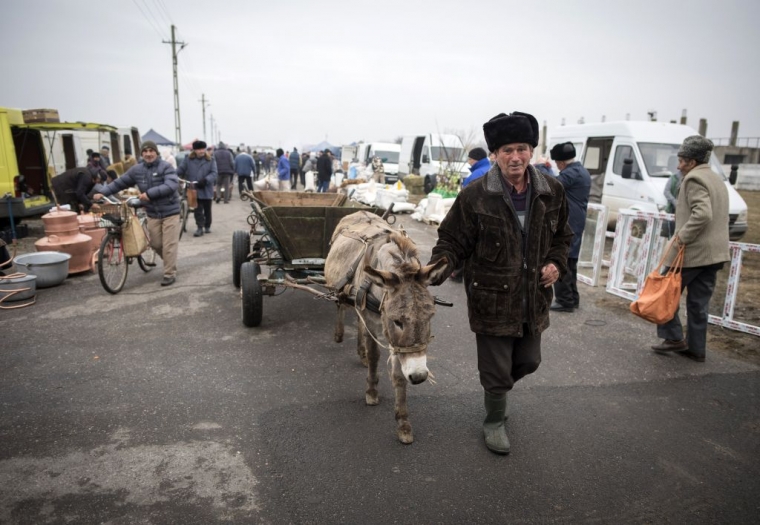The UK is among the most divided countries in the developed world, according to a report that says Blackpool, Manchester and Hull have higher mortality rates than parts of Turkey, Slovakia and Romania.
A report published today by the think-tank Institute for Public Policy North (IPPR North), entitled State of the North, exposes what it describes as England’s “alarming” regional gaps, which it says helped create the “severe” economic and political divide that led to people backing Brexit in 2016.
It says the UK is more regionally divided than comparable countries such as France and Germany.
The health, employment, productivity and disposable income divides are larger than any comparable country, the report says, and parts of England are less productive than parts of Poland, Hungary and Romania.
Great wealth divide

The report authors blamed centralisation for the creation and worsening of these regional divides, saying that 95p in every £1 paid in tax is taken by Whitehall, compared with 69p in Germany.
Just 1 per cent of GDP is spent by local government on economic affairs – half as much as is being spent locally and regionally in France and Germany.
Andy Burnham, the Mayor of Greater Manchester, said: “Our London-centric parliament is the root cause of the deep North-South divide that scars our country and by extension the wider divides in today’s politics.
”Westminster has become dysfunction and is not providing the answers the North needs. In the days that remain in the General Election campaign, we need to hear ideas for substantial political reform and the transfer of power out of Parliament and into the English regions.”
London calling
The UK is “unique” in the severity of its regional divides and this is in large part due to the over-centralisation of power in Westminster, the State of the North report says.
Centralisation has helped to fuel a level of discontent that made itself heard in the Brexit vote, it adds.
“We are both more regionally unequal and more centralised than any comparable nation,” it says. “Moreover, we are regionally unequal because we are so centralised.
“There is growing pressure for real change in the power relations in this country – between rich and poor people or between companies and their staff. But the power relations between Westminster and the regions of England must also change.
“It is unsustainable that a region such as the North – home to 15 million people, larger than most EU countries – still depends on a centralised model of devolution, with key decisions being made in or imposed by a government hundreds of miles away.”
Unlocking the potential of regions
The report says the “acute” problems are surmountable with regional devolution already unlocking the potential of northern regions.
The Conservative manifesto says its ambition is for “full devolution across England” and through city and growth deals, the Government has delivered more than £9bn of funding across the country.
Labour has promised a local transformation fund for each English region to be used for locally-derived infrastructure projects. while the Liberal Democrats say they will enact legislation to allow groups of local authorities to develop devolved governance arrangements.
Read More:
General election 2019: Brexit Party targets Leave voters in Burnley who are ‘fed up with lies’
Regional divides
Roger Marsh, the chairman of the NP11 Board, which brings together 11 northern Local Enterprise Partnerships, said: “IPPR North is right to emphasise that empowering the North and other regions outside of London to collaborate with pounds and powers through devolution – rather than the current system which encourages competing for resources from the centre – is the most effective way to unleash our collective potential.”
Arianna Giovannini, the interim director of IPPR North, said: “This year has exposed our country’s regional divides. As the Brexit debate raged in Westminster, economic uncertainty permeated every corner of the country.
“The next government must lead a Devolution Parliament – an unprecedented and irreversible shift of power – so that England’s regions, towns and cities can work together to bridge our regional divides”.
Romania — Gap between rich and poor highest in EU

The UK is the most regionally unequal country of its size and development, according to the State of the North report.
The only countries that are more regionally unequal are in eastern Europe – Romania, Bulgaria, Latvia, Estonia and Lithuania – plus smaller countries such as Ireland or Greece and countries with a dominant industrial region such as South Korea.
It says the UK has retained the same level of regional inequality for a decade. But, according to the report, the UK spends a smaller percentage of its GDP on transport than all EU countries, including Romania.
“The UK under-invests in transport, largely due to the centralisation of its decision-making,” the report says.
It says all other major EU countries spend proportionally more on transport.
Romania has one of the highest poverty rates in the EU, with 40 per cent of the population at risk of poverty in 2016. The gap between rich and poor is also the highest in the EU, with the top 20 per cent of Romanians earning seven times the amount of those in the bottom 20 per cent.
Poverty is at the highest in rural areas. Around 45 per cent of Romania’s population lives in rural communities and 70 of them are in poverty.


Angela Rayner is ready to make her move